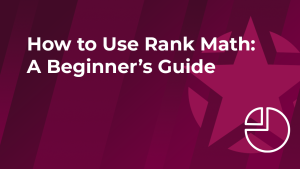Best SEO Tools for Success
Growing up, all I ever wanted to do was to fly airplanes. So I studied hard, went through flight school, and gained my commercial pilot’s license. The ultimate goal was to fly internationally for a major airline.
And I achieved that in 2013.
Now I found myself being in the air for 14 hours across the Pacific Ocean in the middle of the night, flying passengers to exotic destinations.
I had made it. I was so proud of what I had achieved that I now needed something else to focus on and keep my mind active.
So I started doing a lot of research, and I landed (pardon the pun) with building websites.
Wandering the World of Online Businesses
My first taste of the online business world started in 2015 when I built my first site. Looking back now, I thought it was the greatest thing to ever live on the internet. Ah, how naive I was.
From there, I found the world of Amazon FBA (Fulfillment by Amazon). This is e-commerce at its finest for someone who lives in Australia, being that I could sell products to one of the biggest marketplaces in the world (USA), all without leaving my own country!
I had gone through quite a few courses, and all of them mentioned how vital search engine optimization (SEO) and keyword research are to get your product seen on the platform. I had no idea what these guys were on about!
I was so overwhelmed by this point that I decided to hire someone right out of the gate to do it for me. This was my first big mistake. These “agencies” really had no idea, and after spending a few thousand dollars on “optimizing” my listing, my product still wouldn’t move up the rankings.
I got so frustrated that I thought, how hard can this be? So I began to teach myself SEO. Within a month, my product started increasing in rankings with Amazon’s algorithm, and I was gaining traction.
Any money that I made, I doubled down on the business and invested everything back into it. My next step was learning to take my product off of Amazon and onto Google’s platform. So I built an e-commerce site with WordPress and backed it up with WooCommerce.
To cut a long story short, I finally sold my e-commerce business for a good five figures after about a year in total.
From Ecommerce to Blogger
After the early success I had in SEO, I took the plunge and started a personally branded blog in 2021. Thanks to Covid, I had actually been stood down from my flying job and had no income to support my family.
Blogging is something that I knew about, but only thought it was about sharing your daily life (not that there was anything wrong with that). Instead, I found that people were actually building blogs and monetizing them through their audience.
Over the next year, I learned to build relationships in an industry I had no idea about (and loved it). I was working as a freelance writer for a tech blog. Learning the ropes of how other businesses built their blogs using a particular content strategy and link-building efforts, I went to work and started my own business plan.
My strategy was simple. Treat the blog like a business. This led me to just two things that were consistent with every blog I researched. Content and links.
After just a year, I was beginning to make affiliate sales on my own site, and I had just a handful of clients who I was helping do the same.
Now, I am all for making life easier and more efficient. And it’s for this reason that I love using the various software products out there for digital marketers. Below is the list that I use on a daily basis for myself and my clients.
The 5 Software Tools I Use daily
Using these tools helps you get the information you need quickly, so you can go back to doing tasks that really move the needle in your business.
1. WPX

New bloggers know their website needs to live somewhere, so they end up going for the cheapest hosting possible. But this can actually end up hurting their business.
One of the most critical foundations of a successful SEO campaign is having fast and reliable web hosting. Google’s algorithms are focused on providing the optimum experience to their users, and that’s why websites with fast loading speeds are rewarded with better Google rankings.
If you have a slow website, Google’s crawler will find it difficult to gather all relevant data for their search index. It will take longer for your site to be indexed, which means that it will take time to show up in search engine results.
This is why I chose WPX as my hosting provider. It offers fast speeds and excellent performance at an affordable price. I use the basic plan that can support up to 5 sites, which is good for setting up client and staging sites. I also use it with some of the other niche sites I’m working on.
One of the biggest positives WPX have is their customer support. They are always online and willing to help me with any issues I encounter, even if it’s not directly related to hosting.
2. Ahrefs

If you need an all-in-one SEO tool, Ahrefs is the one for you. This is the tool I use the most and has helped me run many successful SEO campaigns. It covers all the critical foundations you need for SEO, such as keyword research, rank tracking, competitor research, SEO audit, content research, and much more.
One of my favorite features is the keyword explorer tool, which allows me to look for hidden long-tail keywords that I can use on my campaigns. I also use the Site Explorer feature, which lets me spy on my competitors.
This competitive research tool provides details on what keywords my competitors are ranking for, which websites are linking to them, and whether they’re using paid search advertising or not.
It also has the second-largest website crawlers—second to Google—which means it carries a lot of information you need for your campaigns.
3. Google Analytics and Search Console

Even though Ahrefs provides a lot of information you need for your SEO campaigns, you still need insights directly from Google to help your sites rank better. Two tools I use to get this information are Google Analytics and Search Console.
The best part? They’re both offered for free and contain most of the useful information you need.
I use the Google Analytics tool to see which pages are doing well and what terms people are searching on my site. Then, I use those terms on certain pages to help me rank higher and gain even more traffic.
On the other hand, I use Search Console to update old posts and force-index new pages. Basically, these two tools help me understand how Google and its users view my website. I use these insights to optimize my site to perform better in Google’s search results.
4. ConvertKit

Ranking on search results is great for building brand awareness, but that shouldn’t be the only marketing strategy you need to have. You need to convert these visitors to customers or subscribers.
One way to do this is through email marketing. Of course, you can’t just implement an email marketing strategy without getting your visitors’ information. Many people use different tools for these two things, but there’s one tool that can do both.
ConvertKit is an email marketing platform that comes with a contact form feature that can be easily integrated with WordPress. This means that whatever information you capture on your form will be automatically added to your mailing list.
On top of that, if you’re just starting your list and only have 1000 subscribers or less, you can use the platform for free. It’s perfect for those who are starting out and on a budget.
5. Apollo.io

Last but not the least, Apollo.io. It is an engagement platform that helps companies and individuals gather data and look for new leads.
While it’s technically not a marketing tool, it does help me with my cold outreach program to build backlinks.
I use this program, together with LinkedIn. It allows me to get the information of the actual person in charge and not just the generic email or contact form on the website I want to guest post on.
It basically allows me to get the verified email address of the contact person I need, and then it saves that to my email client, allowing me to fire off more personalized emails.
Wrapping Up – The Sky’s The Limit
The trick is to treat your blog like a business and choose a niche with real revenue potential and market demand.
Today the ultimate goal is to help others build the same success I have and be an inspiration to others who still think it’s too hard to just start.
I hope that this has shown that even with a full-time job, and a family, it is still possible to create a side income to help achieve your goals. Whether that’s getting more time at home or spending it for a better life, you are the pilot of your life.





